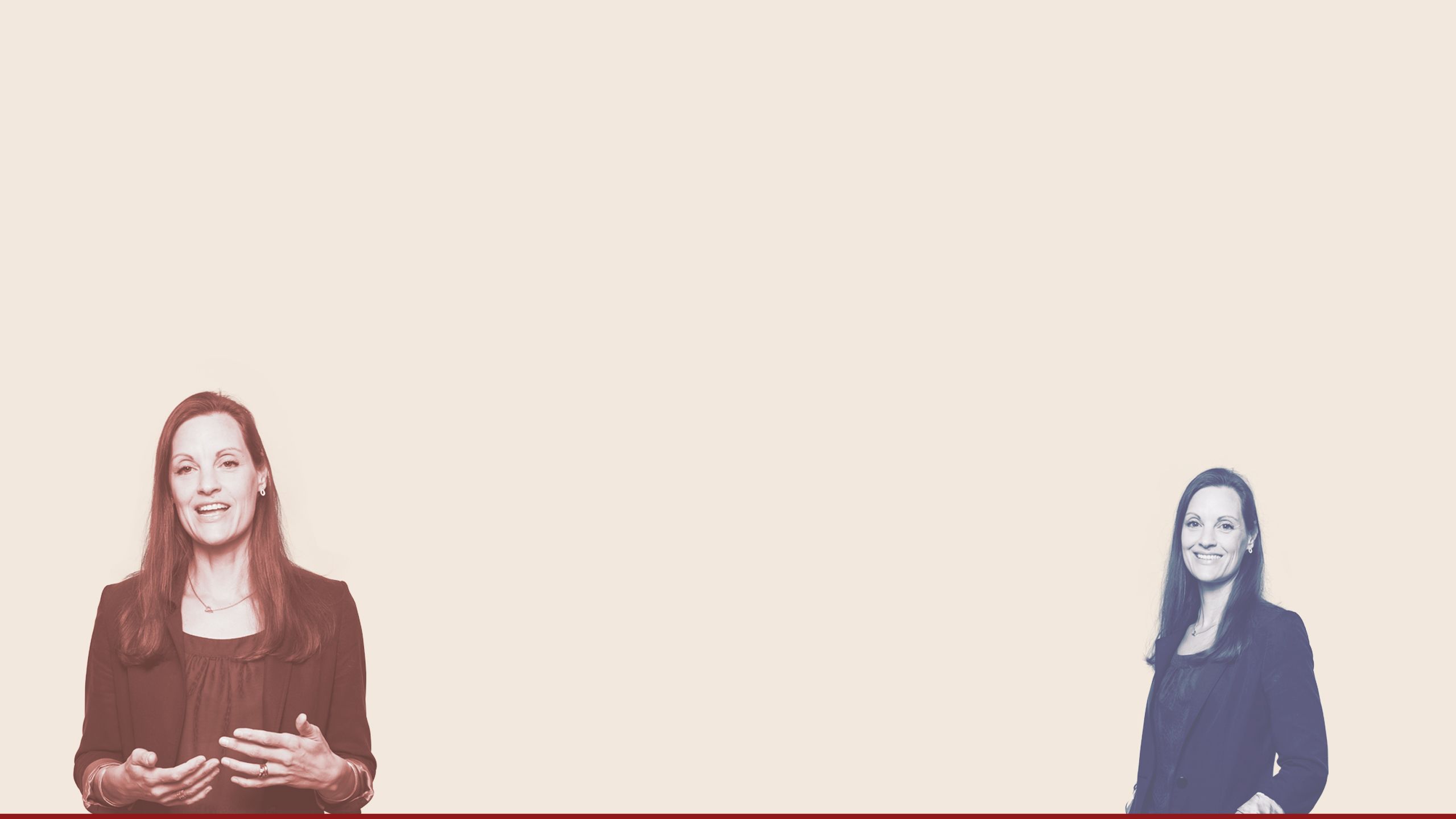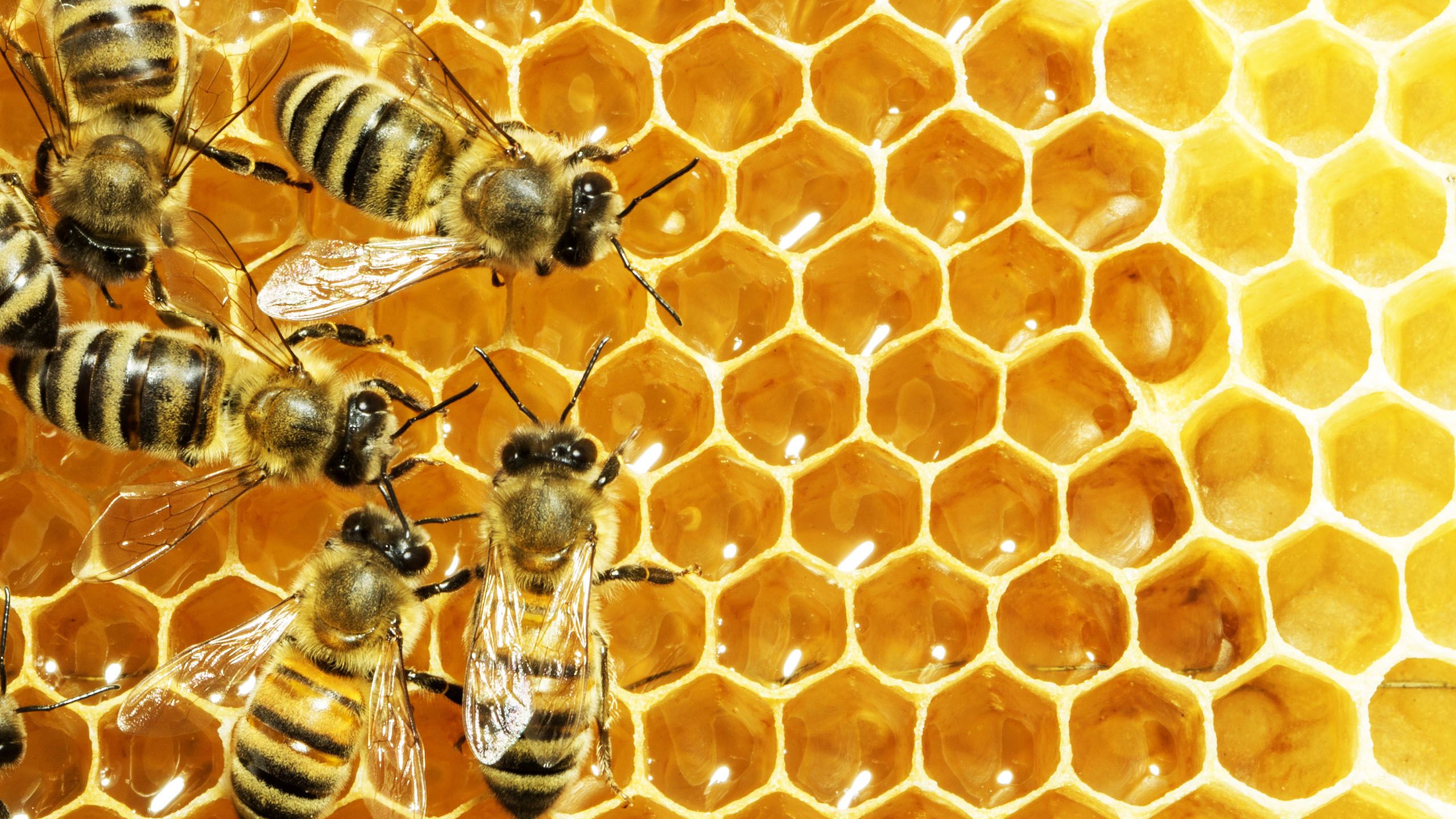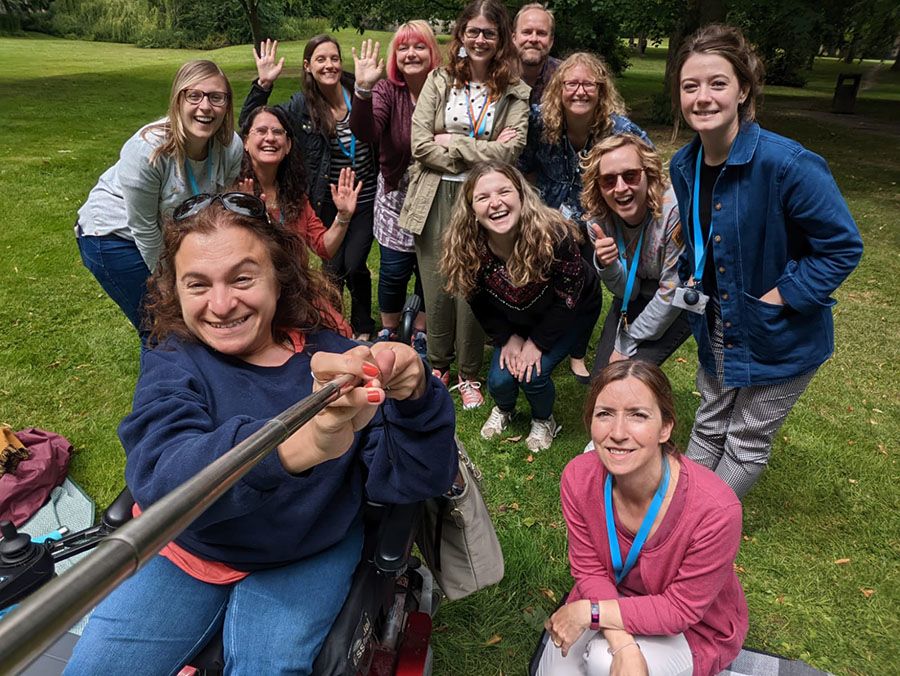Meet the professional
challengers

When Harriet Cannon joined Disability Services in 2007, disability support in higher education looked very different from today. With little awareness of autism within higher education settings, it was unusual for any specialist support to be provided. So when the University created a role working directly with autistic students, her interest was piqued.
She got the job. Harriet and her colleagues in Disability Services are leading the charge for a more accessible, inclusive university experience for disabled students at Leeds. Her work as an autism practitioner has led to her being awarded the National Association of Disability Practitioners (NADP) prestigious Deb Viney award.
She says: “I come from an autistic family and I’d worked with autistic students through a summer school scheme in my old role at the University of Leeds. This was one of the first roles of its kind.”
Today, Harriet manages the Disability Advisory Team within Disability Services, and is an established autism practitioner. She has founded the Association of Autism Practitioners in Higher Education, and she sits on both the Office of Independent Adjudicators Disability Experts Panel, and on the Department for Education’s Autism Advisory Group.
The team has seen the number of autistic students it supports grow from just two to around 350, while the total number of disabled students has jumped from 1,700 to 7,000 – and it gets higher each year.
“It’s a good thing,” says Harriet. “It means people feel able to come to university and expect the support they need.”
The power of the hive mind

Disability Services is made up of around 30 staff members and the Disability Advisory Team is made up of 13 members. Most of these are either Disability Advisors, who ensure disabled students can access the support and adjustments they need, or Disability Coordinators, who work on more complex cases with individual students.
Around 70% of the team are disabled themselves, which has played a part in shaping their working culture. It’s a collaborative, supportive atmosphere that embraces difference and encourages individuals to speak up. Team members need to be comfortable asking difficult questions – after all, it’s their job to make sure the needs of disabled students are being considered.
“It’s interesting managing a team of professional challengers!” Harriet laughs. “I can’t sit back, if I get something a bit wrong, they’ll tell me. I enjoy it though. That’s the spirit of our team, we’re very open.”

Members of the Disability Services team
Members of the Disability Services team
The team operates on what Harriet refers to as a ‘hive mind’ – meeting regularly to share expertise, solve problems collectively and ensure nothing gets missed.
“There’s so much to know about disability that one person can’t know it all,” Harriet explains, “but between us, we either know or we can work it out together. It’s a very collaborative way of working and there’s no such thing as a stupid question. It’s important to me that we are a happy, functional team where people feel safe to get on and do the work, because we have an awful lot to do.”
Flying under the radar
It’s work that, for the most part, goes unnoticed. When everything works as it should, the student moves smoothly through the system and the machinery remains unseen. But that means University staff don’t always know much about the Disability Services, or how useful the team can be for staff as well as students.
Harriet says: “People don’t always use us when they could. As much as we exist to support students, we can provide support to members of staff who want to know more about disability too – whether it's because they’re supporting a disabled student or they're just genuinely interested.”
“We’re really keen for people to come and talk to us so we can help them make their practice better.”

Harriet and Jenny Brady (the University’s Lead on Inclusive Practice) at a conference where they led an inclusive assesment workshop
Harriet and Jenny Brady (the University’s Lead on Inclusive Practice) at a conference where they led an inclusive assesment workshop
Time to do things differently
Those who have taken part in Harriet’s autism awareness training sessions (available to all University staff) will already be aware of how transformative these insights can be.
The training has been praised for its forward-thinking approach – challenging people’s misconceptions about what autism is, and helping non-autistic people understand how they can adapt their approach.
“A lot of autism training is about how you ‘fix’ autistic people and make them stop being so autistic,” Harriet explains, “whereas my training helps non-autistic people think about how they can do things a bit differently.”
“There are some very simple, completely free things that people can do that will make a massive difference to autistic people and make the university environment so much more accessible.” she says.
“And what tends to work for autistic people tends to work for other people too – so it benefits everybody.”
To find out more about autism training sessions or get in touch with Disability Services, please contact disability@leeds.ac.uk
About Harriet
Harriet has 20 years of experience working in the field of disability within Higher Education. She has worked in Disability Services at the University of Leeds since 2007, first as a Disability Coordinator, and now as the Disability Team Manager.
Harriet specialises in autism, holding a PGCert in Autism from the University of Birmingham.
She founded the Association of Autism Practitioners in Higher Education and has received the National Association of Disability Practitioners’ Award for Individual Disability Practitioner.